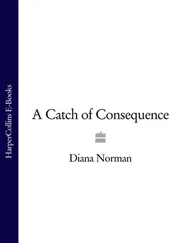Marriage to Aymer, Earl of Stacpoole, though it was his third, had been represented – and accepted – as an honour to a sheltered, sixteen-year-old girl, the desirable joining of two ancient estates; yes, he was her senior by twenty or so years but charming, wealthy, still in need of an heir; she owed the match to her family.
She never forgave her parents for it. They must have known, certainly suspected; the first wife had been a runaway and subsequently divorced, the second a suicide.
After the first year, she’d seriously considered following one or other of her predecessors’ examples but by then she was pregnant, a condition which, as her husband pointed out, made her totally subservient. Kill herself and she killed the child. ‘Run off and I’ll hunt you down.’ He had the right; the baby would be taken from her to be at his mercy in its turn.
She could have given way and become a cowering ghost in her own home but she found defiance from somewhere. The man waxed on terror; she must deprive him of it. As a defence she appropriated boredom, appearing to find everything tedious, complying with the demands of his marriage bed as if they were wearisome games rather than sexual degradation, earning herself thrashings but withstanding even those with seeming indifference.
It was protection not only against her husband but for him; in the sight of God she’d taken him for better or worse, his escutcheon should not tarnished by any complaint of hers.
Nor her own. Though by no means as long as the Stacpooles’, the Countess’s ancestry was equally proud. After a somewhat dubious foundation by Walter Pomeroy, a ruffian who, like Francis Drake, had charged out from Devonian obscurity to fling himself and a large part of a mysterious fortune at the feet of Elizabeth, thereby gaining a knighthood and the Queen’s favour, the Pomeroys had conducted themselves with honour. Young Paulus Pomeroy had refused to betray the message he carried for Charles I though tortured by Cromwell’s troops. Sir William had gone into exile with Charles II. At Malplaquet, Sir Rupert had saved John Churchill’s life at the cost of his own.
The wives had been equally dutiful; happy or miserable, no breath of scandal attended their marriages. Like them, the Dowager threw back to the Middle Ages. Had the Earl been a Crusader, his absence in the Holy Land would have provided his Countess with blessed relief from abuse yet she would have defended his castle for him like a tigress until his return. In this disgraceful age, other women might abscond with lovers, run up debts, involve themselves in divorce, travel to France to give birth to babies not their husband’s, but Pomeroy wives gritted their teeth and abided by their wedding vows because they had made them.
One’s married name might belong to a ravening beast but the name was greater than the man. For Diana, true aristocracy was a sacrament. One did not abandon Christianity because a particular priest was venal. It was the bloodline that counted and its honour must be upheld, however painfully, with a stoicism worthy of the Spartan boy gnawed by the fox. Better that Society should shrug and say: ‘Well, the Countess seems to tolerate him,’ rather than: ‘Poor, poor lady.’ One held one’s head high and said nothing.
Such public and private dignity had discommoded Aymer, put him off his stroke. Gradually, a spurious superiority was transferred from him to her that he found intimidating – as much as he could be intimidated by anything – and even gained his unwilling respect. After that, like the bully he was, he turned his attentions to more fearful victims so that she was spared infection by the syphilis that caused his final dementia.
By then she’d plastered her hurts so heavily with the appearance of finding things tiresome that its mortar had fused into bone and blood. The naive young girl had become static, a woman who moved and spoke with a lassitude that argued fatigue, her drooping eyes seeming to find all the world’s matters beneath her, thus making people either nervous or resentful at what they interpreted as disdain. If they’d peered into them closely they might have seen that those same eyes had been leeched of interest or warmth or surprise by having looked too early on the opening to Hell. Nobody peered so closely, however.
Under the influence of the 1770 malmsey and the Earl’s absence, his funeral party threatened unseemly cheerfulness. Instead of sitting in her chair to receive condolences, the Dowager Countess circled the great room at her slow, giraffe-like pace to remind the more raucous groups by her presence of the respect due to the departed.
There was a hasty ‘We were remembering, your ladyship …’ and then reminiscences of Aymer’s japes, the time when he’d horsewhipped a Rockingham voter during the ’61 election, when he’d thrown his whisky and cigar at Jane Bonham’s pug because it yapped too much, causing it to burst into flame, the time when … Endearing eccentricities of the old school. ‘We won’t look on his like again.’
There was necessity for only one verbal reproof. Francis Dashwood was being overloud and humorous on the subject of her husband’s last illness – Dashwood of all people – and met her arrival with defiance. ‘I was saying, Diana, the pox is a damn hard way to go.’
The Dowager Countess hooded her eyes. ‘For your sake, my lord, one hopes not.’
She passed on to where Alice was exciting herself over the alterations she proposed for Chantries. ‘… for I have always thought it sadly plain, you know. Robert and I plan something more rococo, more douceur de vivre as the French say, more …’ Her voice trailed away at the sight of her mother-in-law but she rallied with triumph. ‘Of course, dear Maman , none of this until we have altered the Dower House à ton goût .’
The Dower House, the overblown cottage on the estate that Aymer had used as a sexual playroom for his more local liaisons. She had never liked the place. Robert and Alice were expecting her to set up home in it – the conventional dower house for the conventional dowager – no doubt to spend her days embroidering comforts for a troop of little Alices and Roberts. Extend twenty-two years of imprisonment into a lesser cell.
‘Make it nice for you, Mater,’ Robert said.
‘Thank you, my dear boy.’ This was not the time to discuss it, nor did she want to hurt him, so she merely said gently: ‘We shall see.’
He was, and always had been, her agony. It had been a mistake to have the baby in her arms when Aymer strode into the room after the birth; it should have been in its cradle, she should have pretended indifference, complained of the pain of its delivery. Instead, she’d been unguarded, raw with an effusion of love. Immediately, the child had become a hostage.
She had failed her son, could have failed him no more if she had run off; he’d been taken away from her: a wet nurse, a nurse, a tutor, school – all of them chosen to distance her from the boy and put his reliance on the caprice of a father who’d both terrified and fascinated him. Her mind trudged round the old, old circular paths. Should she have stood against Aymer more? But revenge would have been visited on the boy as much as her; warring parents would have split him in two. Yet what had she been to her poor child? A figure drifting mistily on the edge of a world in which women were cattle or concubines.
By the time she’d achieved some definition of her own, it was too late; both son and mother were too distanced from each other for the relationship that might have been. Individuality had been stripped from the boy, not a clever child in any case, and he’d opted for a mediocre amiability that offended no one and proved impossible for his mother to penetrate. She’d tried once to explain, said she’d always loved him, was sorry … He’d shied away. ‘Can’t think what you mean, Mater.’ Now, here he was at twenty years old, a genial, corpulent, middleaged man.
Читать дальше












